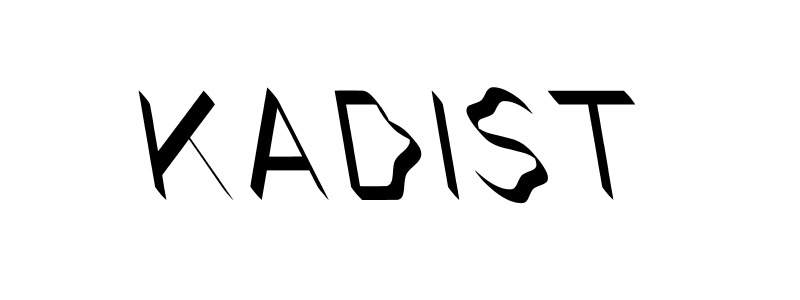RMB City: A Second Life City Planning 04
2007 - Photography (Photography)
Cao Fei
Since 2007, Cao Fei has radically focused her work on Second Life, an online space that virtually mimics “the real world” and includes everything from the expression of ideas to economic investment. Referring to China’s modernization and its capitalist and utopic visions, RMB City explores the ways in which global communication impacts imagination, values, and ways of life. By appropriating virtual reality, Cao Fei opens up a new frontier in the field of art production that surpasses conventional materiality and invites collaboration and exchanges with her public and clients.
Cao Fei is a celebrated multimedia artist known for works that focus on the interplay between real and fictional worlds. Working across photography, performance, video, and digital media, her practice vividly reflects the zeitgeist of the late twentieth century and the role that image production has played in shaping youth culture in a digital era. Influenced by an array of forms of global pop culture—from Cantonese Pop and Japanese anime to American hip-hop—a common thread in her practice is the merging of everyday life with new forms of technology as a means to unveil society’s unfulfilled desires. Her pivotal film Whose Utopia , for example, showcases assembly line workers in a factory in China as they act out their aspirations in a backdrop of industrial machinery. In another key body of work, RMB City, Fei created a virtual city through the platform Second Life —an online space that mimics ‘the real world’—as a vehicle to express ideas that relate to modernization, capitalism, and consumer culture. Through these constructed worlds, Fei presents a profound meditation on the boundaries between the real and the fantastic and the sense of alienation that drives new generations to increasingly experience the world behind the veneer of their Avatars. For Fei, the digital world is an expression of our human condition, and as such, an avenue to reflect on these emerging forms of social consciousness.
Colors:
Other related works, blended automatically

© » KADIST
Chen Shaoxiong
2007After engaging primarily with video and photography for more than a decade, Chen turned to painting to explore the issue of urban change and memories—both personal and collective...

© » KADIST
Pak Sheung Chuen
2008Pak created New York Public Library Projects (NYPLP) (2008) during a residency in New York, using public libraries as exhibition spaces and the books they house as raw materials...

© » KADIST
Petra Cortright
2012In the flash animation SpringValle_ber_girls , Petra Cortright collages together surreal scenes out of unnaturally idyllic desktop screensavers with equally unreal computer-generated women that pop in and out of the landscape...

© » KADIST
Xiaoyun Chen
2014The central point of Vanishing Point is the most direct physiological reaction of the body to the environment...

© » KADIST
Yang Xinguang
2009Although seemingly unadorned at first glance, Yang Xinguang’s sculptural work Phenomena (2009) employs minimalist aesthetics as a means of gesturing towards the various commonalities and conflicts between civilization and the natural world...

© » KADIST
Du Zhenjun
2010The Tower of Babel is an installation of large-format photographs that forces the audience to occupy a central position through its monumental scale...

© » KADIST
Kota Ezawa
2017The Crime of Art is an animation by Kota Ezawa that appropriates scenes from various popular Hollywood films featuring the theft of artworks: a Monet painting in The Thomas Crown Affair (1999), a Rembrandt in Entrapment (1999), a Cellini in How to Steal a Million (1966), and an emerald encrusted dagger in Topkapi (1964)...

© » KADIST
Zhang Peili
2008In the video installation A Gust of Wind , Zhang continues to explore notions of perspective and melds them seamlessly with a veiled but incisive social critique...

© » KADIST
Chen Shaoxiong
2006After engaging primarily with video and photography for more than a decade, Chen turned to painting to explore the issue of urban change and memories—both personal and collective...

© » KADIST
Jianwei Wang
2007In Dilemma: Three Way Fork in the Road , Wang references Peking opera in a re-interpretation of traditional text...

© » KADIST
Jiang Pengyi
2008Unregistered City is a series of eight photographs depicting different scenes of a vacant, apparently post-apocalyptic city: Some are covered by dust and others are submerged by water...

© » KADIST
Pak Sheung Chuen
2017The series Nightmare Wallpapers represents a shift if Chuen’s practice, allowing the artist to immerse himself in an “artistic pilgrimage of self healing” following the failure of the 2014 Umbrella Movement...

© » KADIST
Yang Zhenzhong
2012Peasant Sensation Passing Through Flesh – 3 consists of a massage chair fixed to a wall...

© » KADIST
Du Zhenjun
2010The Tower of Babel is an installation of large-format photographs that forces the audience to occupy a central position through its monumental scale...

© » KADIST
Xiaoyun Chen
2012The lengthy titles in Chen Xiaoyun’s work often appear as colophons to his photographs that invite the viewer to a process of self realization through contemplating the distance between word and image...





